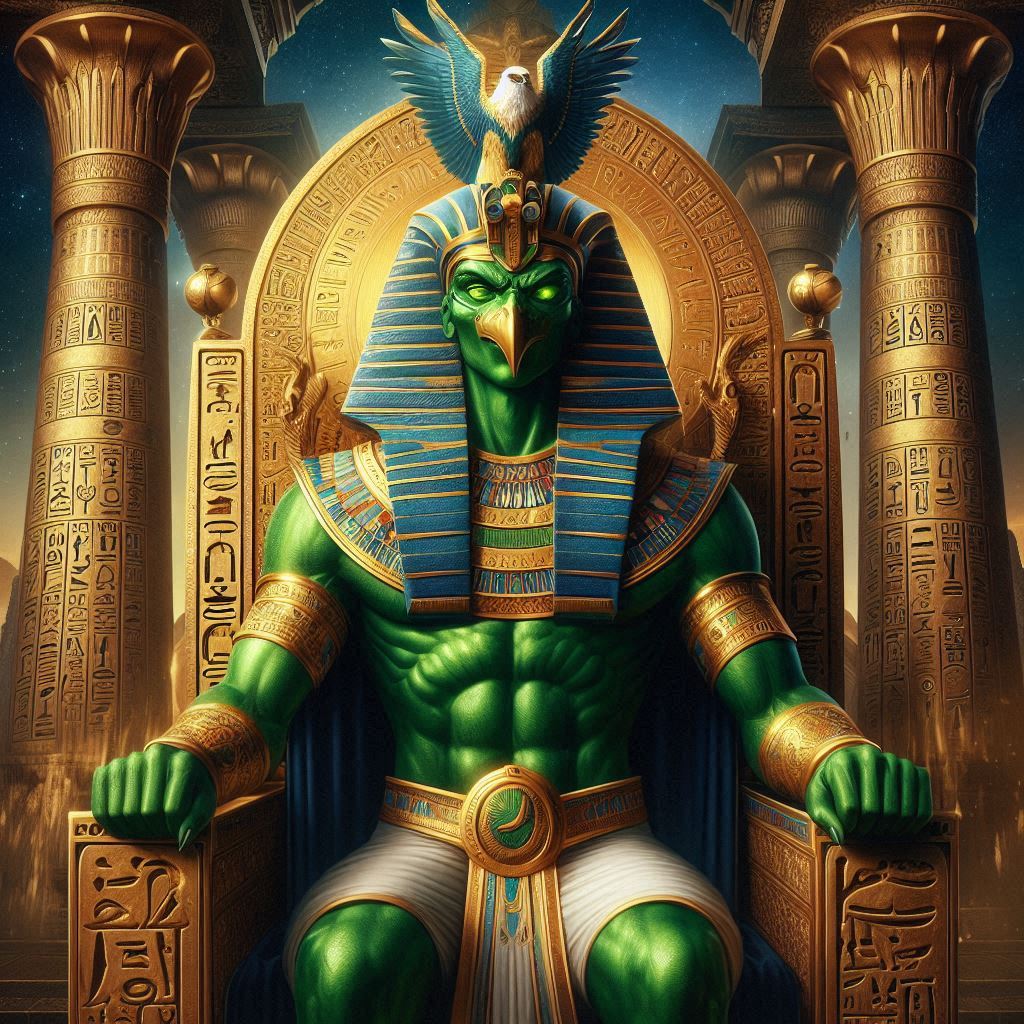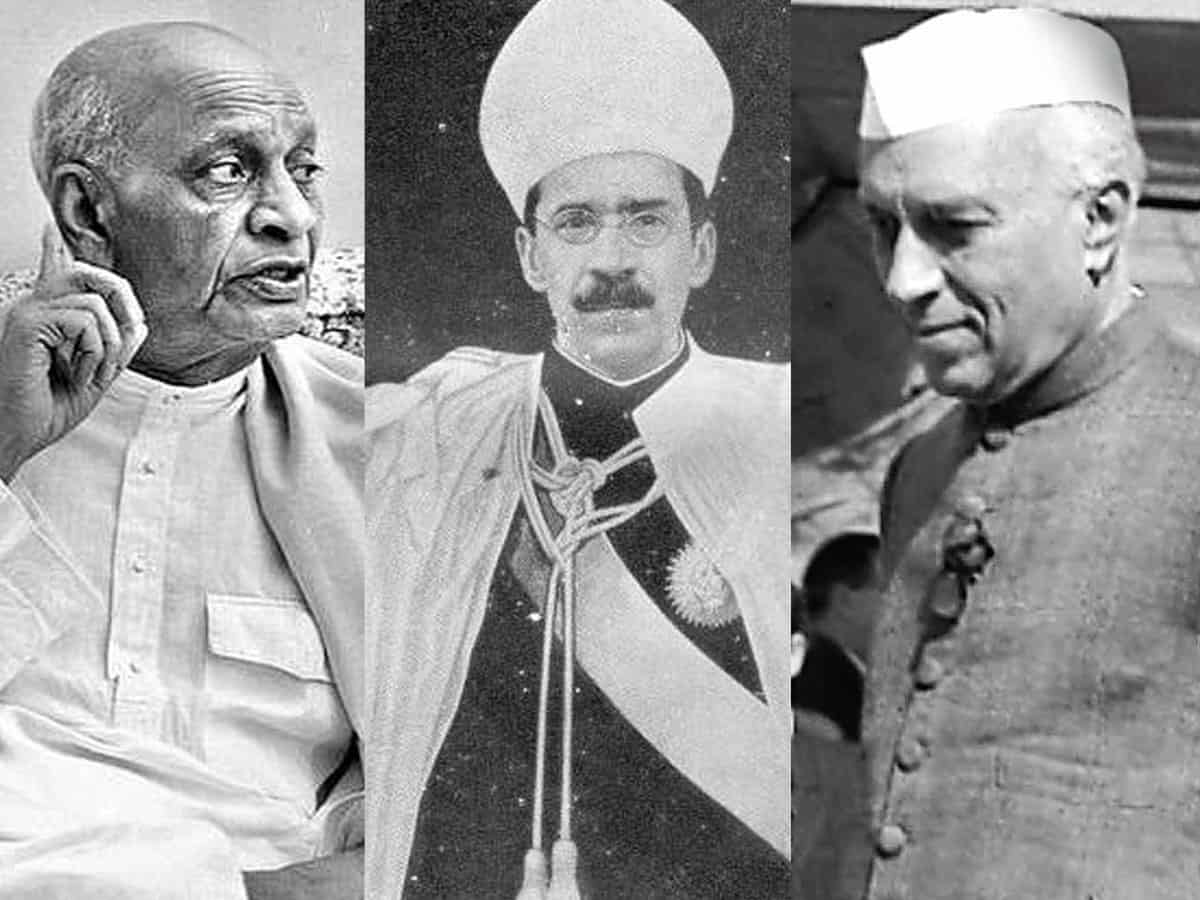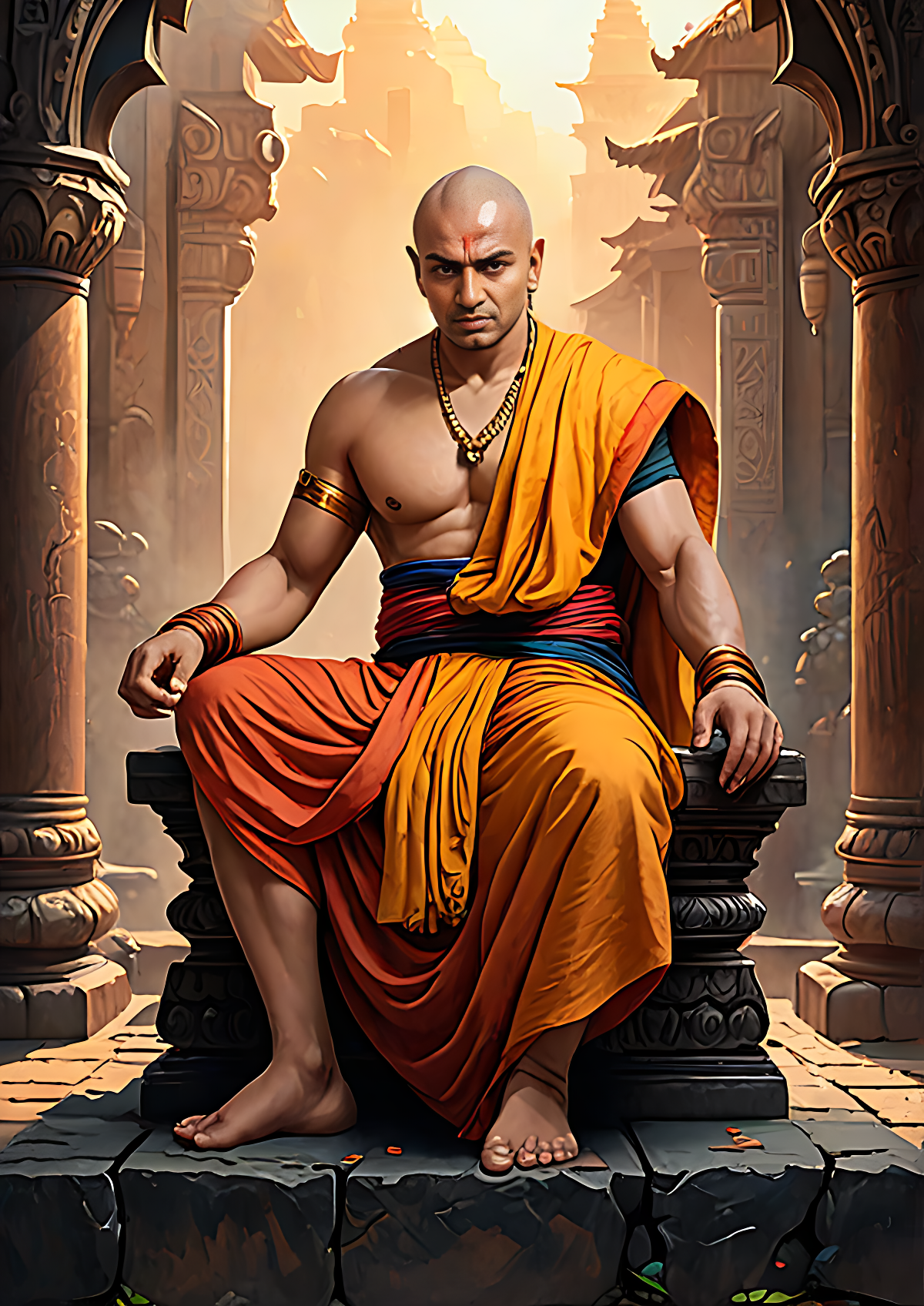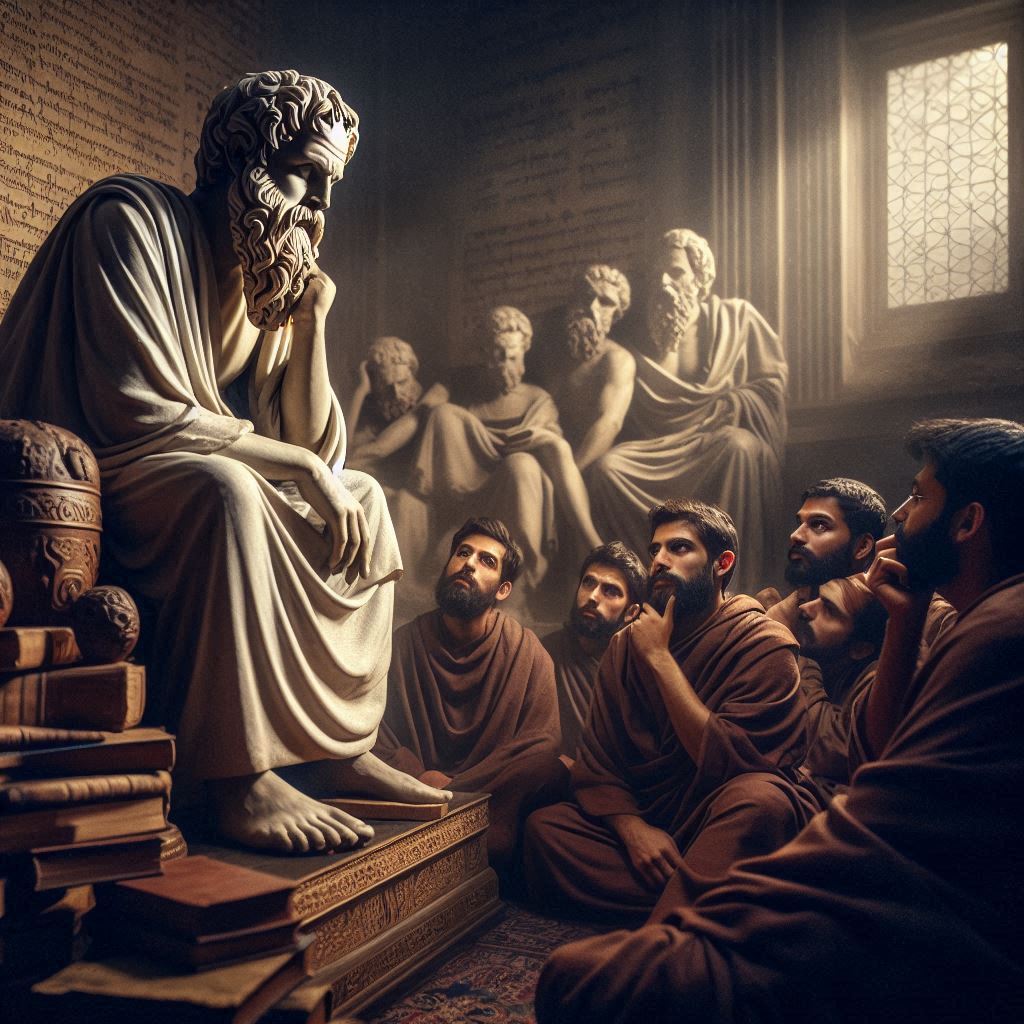
- Introduction
- Who Was Socrates?
- The Mysterious Way Socrates Asked Questions: The Socratic Method
- Socrates’ Belief in Seeking Truth
- Socrates’ Philosophy on Goodness and Virtue
- The Oracle of Delphi and Socrates
- Trial and Death
- How Socrates’ Ideas Live On
- Why Socrates’ Philosophy is Mysterious
- Examples of Socratic Philosophy in Everyday Life
- Conclusion
Introduction
Socrates was a famous philosopher from ancient Greece who lived around 2,500 years ago. He is often called the “Father of Western Philosophy” because he introduced new ways of thinking about life, knowledge, and the world around us. Unlike other people who might have simply told others what they believed, Socrates asked a lot of questions. He wanted people to think for themselves and find their answers. His unique approach to learning and teaching made him one of the most famous philosophers in history, and his ideas have inspired people for centuries.
Who Was Socrates?
Socrates was born in Athens, Greece, around 469 BC. He spent most of his life in Athens, where he became known for his deep thoughts and powerful questions. Socrates didn’t write any books or essays himself, and we only know about his teachings because of his students, like Plato, who wrote down his ideas and conversations.
Socrates didn’t look like a typical hero. He had a simple appearance, often going barefoot and wearing old clothes. But what made him special was his wisdom and his ability to make people think about the world in new ways. Instead of giving people answers, he asked questions like, “What is truth?” and “What is justice?” These questions made people pause and think deeply about their beliefs and actions.
The Mysterious Way Socrates Asked Questions: The Socratic Method
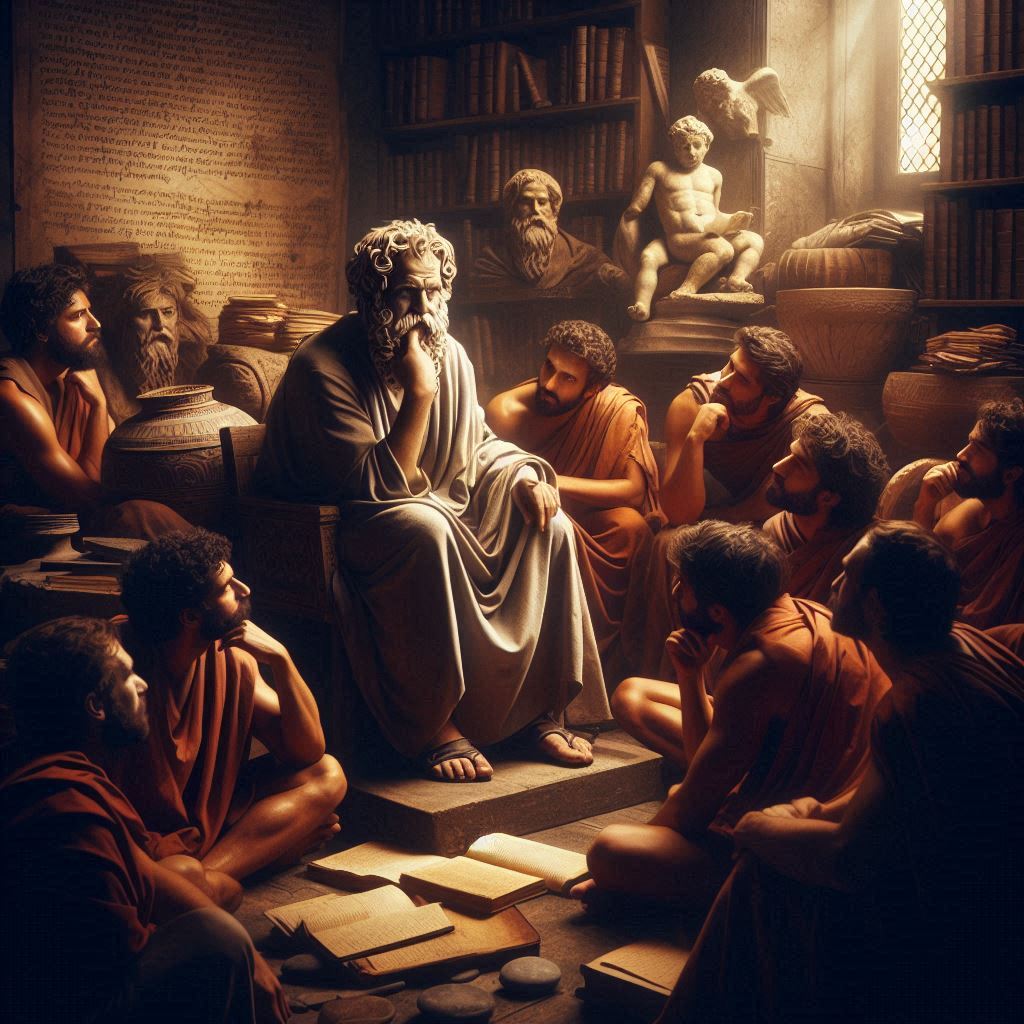
Socrates’ way of teaching was known as the “Socratic Method.” Instead of telling people what was right or wrong, he would ask them questions. Through this method, he helped people understand their own beliefs better, often showing them that they might not know as much as they thought they did. This method is still used today, especially in schools and universities, to help students learn by asking questions.
For example, if someone said, “I think being rich makes a person happy,” Socrates might ask, “What is happiness?” or “Can someone be happy without being rich?” By asking these questions, Socrates encouraged people to look deeper into their beliefs and think more critically.
Quote: “The only true wisdom is in knowing you know nothing.”
This famous quote by Socrates means that true wisdom comes from understanding how little we actually know. It reminds us to stay humble and always be open to learning.
Socrates’ Belief in Seeking Truth
Socrates believed that every person should search for truth, not just accept what they’re told by others. He thought that by questioning everything around us, we could find answers to important questions in life. Socrates’ goal was to understand what was true, not to win arguments or prove himself right. He believed that finding the truth could lead people to live a good, honest life.
One of his most famous questions was, “What is the meaning of life?” Socrates thought that by discovering the truth about life, love, justice, and other big ideas, people could live more meaningful lives. This search for truth and understanding is one reason why he became so respected, even though some people didn’t agree with his ideas.
Socrates’ Philosophy on Goodness and Virtue
Socrates believed that being a good person, or having “virtue,” was the most important thing in life. He thought that people should focus on being kind, fair, and honest instead of just trying to gain wealth or power. According to Socrates, if someone was truly wise, they would naturally do what was right. He believed that knowledge and goodness were connected. In other words, he thought that people did bad things because they didn’t fully understand what was good.
For example, if a person knew that lying could hurt someone’s feelings, Socrates believed they wouldn’t lie. To him, wisdom and goodness were the keys to a happy life.
Quote: “An unexamined life is not worth living.”
Socrates believed that if we don’t think about our actions and choices, we won’t live a truly meaningful life. He thought that examining our lives helped us become better people.
The Oracle of Delphi and Socrates
There is a famous story about Socrates and the Oracle of Delphi. The Oracle was a respected figure in ancient Greece who gave advice and predictions. One day, someone asked the Oracle if there was anyone wiser than Socrates, and the Oracle replied, “No.” This surprised Socrates because he didn’t consider himself wise. He thought of himself as someone who was always learning and searching for answers.
Socrates decided to investigate what the Oracle meant by this. He talked to other people who were considered wise, like politicians and poets, but he found that many of them thought they knew a lot but actually didn’t know much. Through this experience, he realized that he was considered wise because he understood his own ignorance. This means he was aware that he didn’t know everything, which made him wiser than those who thought they knew it all.
Trial and Death

Even though many people admired Socrates, others did not like his questioning nature. Some people thought he was disrespectful or that he encouraged young people to question their beliefs too much. Eventually, Socrates was brought to trial and accused of corrupting the youth of Athens and disrespecting the gods. The court found him guilty and sentenced him to death.
Socrates was given a choice to stop teaching or face the punishment. However, he chose to stay true to his beliefs and accept the punishment rather than go against his principles. He drank a cup of poison called hemlock and died peacefully, surrounded by his friends and followers.
Quote: “I would rather die having spoken in my manner than speak in your manner and live.”
This quote shows how strongly Socrates believed in speaking the truth, even if it meant losing his life.
How Socrates’ Ideas Live On
Socrates’ ideas have lived on for thousands of years, inspiring many other philosophers, like Plato and Aristotle. His way of thinking has helped shape our understanding of philosophy, science, and even democracy. By encouraging people to think for themselves, Socrates helped create a culture of questioning and learning that is still important today.
One famous example of his influence is in education. The “Socratic Method” is still used by teachers to help students explore ideas by asking questions. This method encourages students to think deeply and find their own answers instead of just memorizing facts. It shows how Socrates’ ideas are still valuable and useful in our world today.
Why Socrates’ Philosophy is Mysterious
Socrates’ philosophy is often called “mysterious” because he didn’t write anything down, and much of what we know about him comes from others, like his student Plato. This has led to different interpretations of his teachings. Some people wonder exactly what he believed, and others debate his true intentions. This mystery around his life and beliefs makes him an intriguing figure in history.
Quote: “Wonder is the beginning of wisdom.”
This quote shows that Socrates believed curiosity and questioning are the first steps to gaining knowledge.
Examples of Socratic Philosophy in Everyday Life
Socrates’ philosophy encourages us to ask questions and seek the truth, which we can apply in our daily lives. For example:
- In School: When we learn something new, we can ask questions to understand it better, like, “Why is math important?” or “How does history help us today?”
- Friendships: Socrates would ask us to think about what makes a true friend. By asking, “What qualities make a good friend?” we can better understand who we want to be around and what it means to be a good friend ourselves.
- Decisions: Before making decisions, Socrates would advise us to ask, “Is this the right thing to do?” By thinking through our choices, we can make decisions that are fair and wise.
- Self-Improvement: Socrates believed in constantly learning and improving. We can do this by asking questions like, “How can I be a better person?” or “What can I learn today?” This helps us grow and become better individuals.
Conclusion
Socrates was a unique thinker who changed the way people thought about life, truth, and learning. Through his questions, he showed us the importance of seeking wisdom and understanding ourselves. His teachings remind us that wisdom comes from knowing our own limitations and being open to learning.
Socrates’ philosophy might seem mysterious and complex, but at its core, it’s about living an honest life, being curious, and never stopping our search for truth. His legacy lives on, reminding us to keep asking questions and exploring the world around us.
Final Quote: “To find yourself, think for yourself.”
Socrates believed that true happiness and wisdom come from understanding who we are and thinking independently. His life and teachings remind us that questioning, learning, and thinking for ourselves are some of the most valuable things we can do.

